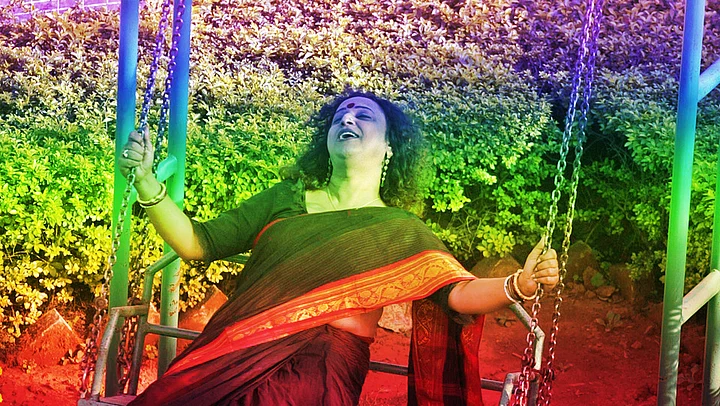November 14-20 is Transgender Awareness Week, an opportune time to share the stories of transgender, non-binary, and other Gender-expansive individuals. The Quint is reposting this article from its archives which was originally published on October 20, 2015.
India’s first transgender college principal Manabi Bandopadhyay says her struggle to be recognised as a “third gender” was not easy in the largely conservative country. She urged the government to provide jobs for sexual minorities who often face discrimination and abuse.
50-year-old Bandopadhyay made headlines last month and caused quite an uproar when the professor of Philosophy and Bengali was appointed principal at Krishnanagar Women’s College in West Bengal.
Living Through Mockery
But Bandopadhyay, who underwent a sex change operation in 2003 to become a woman, says her two-decade long journey to the top of academia was fraught with jibes and harassment and called on authorities to do more to support transgenders.
“In schools, colleges, all my life I was ridiculed for my effeminate ways,” said Bandopadhyay, who was born under the male name of Somnath and brought up in a village in Nadia district.
Due to their lack of access to jobs and education, many of India’s male-to-female transgenders – also known as hijras – are forced to work as sex workers or beg on the streets.
Many of the transgenders are on the streets begging because of the absence of a job. The Supreme Courtof India has ruled in our favour and the government should think about their employment.
– Manabi Bandopadhyay
The Supreme Court Relief
In April last year, the Supreme Court of India recognised transgenders as a legal third gender in a landmark ruling and ordered the government to ensure their equal treatment.
The court ruling recognised the community as a marginalised group and directed authorities to implement policies to improve their socio-economic status.
This means that all identity documents – including birth certificates, passports and driving licenses must recognise the third gender. The government must also work towards allocating a certain number of public sector jobs, seats in schools and colleges to third gender applicants, say lawyers.
But while the judgment was been welcomed by campaigners, it is not being implemented across the country. Activists say the ruling is contradicted by the court’s reinstatement of a gay sex ban that does not recognise their right to sexual relationships.
Surviving the Struggle
Bandopadhyay said she suffered emotional and physical abuse from her family and peers when she was a college student and was even suspended by college authorities due to her refusal to behave as a heterosexual.
“My father was never happy with my femininity and he always taunted me. But I never gave up,” she said. “It has been a long struggle for me and I overcame it somehow.”
(With inputs from Reuters)
------------------------------------
RELATED STORIES
1. Meet Manabi, India’s first Transgender College Principal
(At The Quint, we question everything. Play an active role in shaping our journalism by becoming a member today.)
